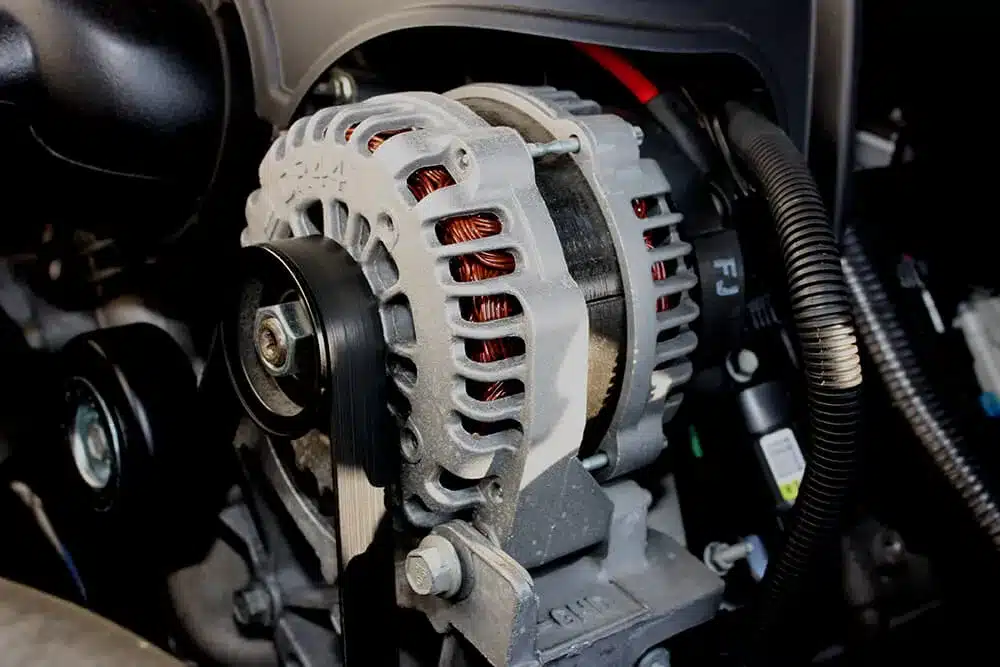An overcharging alternator, or alternator that produces too high of a voltage, can be caused by various factors and lead to damage to the battery or other components if left unchecked. If your mechanic suspects that the alternator is overcharging, they will test the voltage output of your alternator to ensure it’s charging at the proper level–usually around 14 volts on a 12V system.
The car’s computer system regulates the operation of the alternator to keep the charge between 12 and 14 volts, with an average output of 13.8 volts. While overcharging is not as common as undercharging, it does occur sometimes, and it’s crucial to correct the problem before it’s too late.
What Causes an Alternator to Overcharge?
An alternator is a generator that converts mechanical energy from an engine into electrical energy. In an automobile, it charges the car’s battery and supplies power to the electrical systems. When an alternator overcharges, it can cause damage to these systems and reduce fuel efficiency.
There are many reasons why an alternator could be overcharging, including faulty wiring or loose connections. However, the voltage regulator is the most common cause of an overcharging alternator. The voltage regulator is integrated into the alternator and is responsible for maintaining the voltage in the normal operating range. If the voltage regulator is faulty, your mechanic will typically recommend replacing the alternator.
What Problems can Overcharging Cause?
When an alternator is overcharged, it can cause major problems. The high voltage from an overcharging alternator can damage delicate electrical components that your car needs to run. The extra voltage on your battery can also cause it to leak acid, overheat, or explode. That’s why taking your car to a mechanic as soon as possible is important if you think there might be an overcharging problem.
How is an Overcharging Alternator Diagnosed?
A mechanic will check your alternator by disconnecting it from your battery and measuring its output. The mechanic may also use a multimeter to measure the voltage across the terminals of your battery. If you have an overcharged alternator, there will be no output on either side of the battery.
How is an Overcharging Alternator Repaired?
While it may be possible for a voltage regulator to be repaired, it is usually not practical. Instead, your mechanic will usually recommend replacing the alternator with either a remanufactured unit or a new one. Another option is a rebuilt alternator, but these are not usually recommended. If you notice any signs of an overcharging alternator, get your vehicle to a professional as soon as possible.

